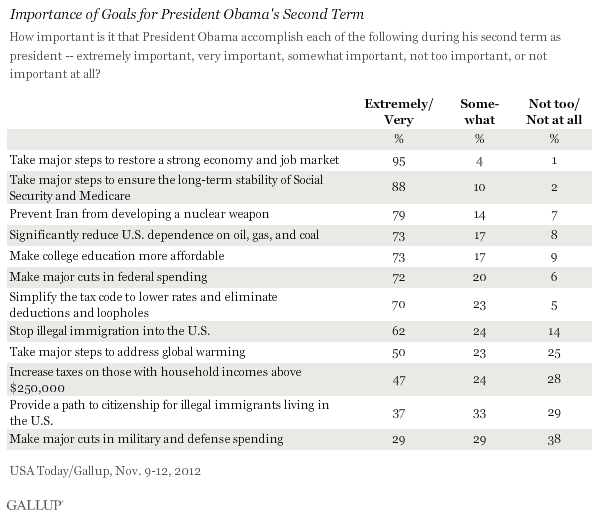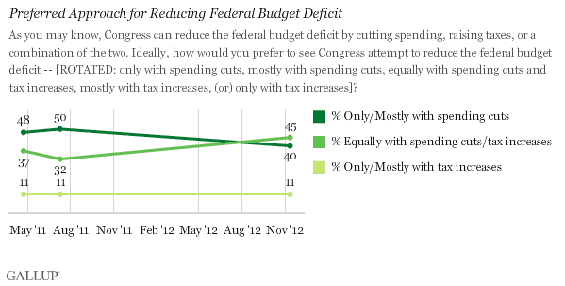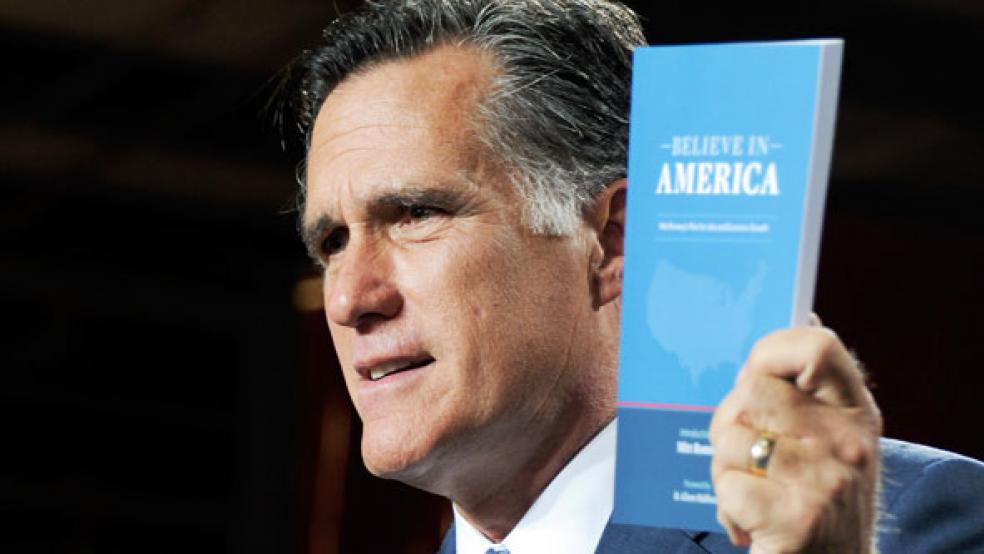Mitt Romney was soundly defeated in the presidential election, but parts of his economic agenda live on.
Republicans, including House Speaker John Boehner, have signaled a willingness to eliminate or cap tax deductions as a way to raise more revenue. That’s an idea that Romney floated toward the end of the campaign (and it’s similar to a proposal presented to Congress by President Obama that would cap the rate for deductions at 28 percent).
Now a new Gallup poll of 1,009 adults conducted after the election suggests that some elements of Romney’s plan are still resonating with Americans. Almost all those surveyed said the economy and job market need to be a top priority in Obama’s second term. But 88 percent say entitlement reform is extremely or very important, with another 10 percent calling it somewhat important. About 70 percent say cutting federal spending and simplifying the tax code should be priorities.
And while the president has emphasized his desire to end the Bush-era tax cuts for those families making $250,000 or more, just 47 percent of people surveyed by Gallup call that extremely or very important.

“While less than half of Americans consider this a highly important goal, another 24 percent call it somewhat important, indicating the public may not resist it,” Gallup’s Lydia Saad wrote in explaining the poll results. “However, a much larger proportion is in favor of tax reform that lowers tax rates and eliminates deductions and loopholes – more along the lines of what Romney was proposing.”
In the days since the election, the president and Republicans have sparred over who has a bigger mandate, and Obama has claimed strong support for ending those tax breaks for high income earners. Another problem: Limiting deductions along the lines proposed by Romney, or even by Obama in his budget proposals, wouldn’t raise as much revenue as ending the Bush tax cuts for those making $250,000 or more.
“If there was one thing that everybody understood was a big difference between myself and Mr. Romney,” the president said at his Wednesday press conference, “it was, when it comes to how we reduce our deficit, I argued for a balanced, responsible approach, and part of that included making sure that the wealthiest Americans pay a little bit more. I think every voter out there understood that that was an important debate, and the majority of voters agreed with me – by the way, more voters agreed with me on this issue than voted for me. So we've got a clear majority of the American people who recognize if we're going to be serious about deficit reduction, we've got to do it in a balanced way.”
The latest Gallup results bear that out, as 45 percent of Americans now say the budget deficit should be reduced by an equal balance of tax increases and spending cuts, up from 32 percent last year. Another 11 percent now say it should be done only or mostly through tax hikes.
At the same time, 85 percent say they like the idea of cutting the deficit mostly through spending cuts or through an equal balance of cuts and taxes.

“At this point, Americans appear more willing than last year to consider tax increases as a substantial part of a deficit reduction approach,” Gallup’s Jeffrey M. Jones wrote yesterday. “However, that increase is seen mainly among Democrats and independents. Thus, Republican leaders must decide whether to follow the wishes of the party's rank-and-file supporters and put a lesser emphasis on tax increases, or to compromise and move in a direction of a balanced approach now favored by the greatest number of Americans overall.”
The negotiations between Obama and GOP leaders are set to start in earnest on Friday.





